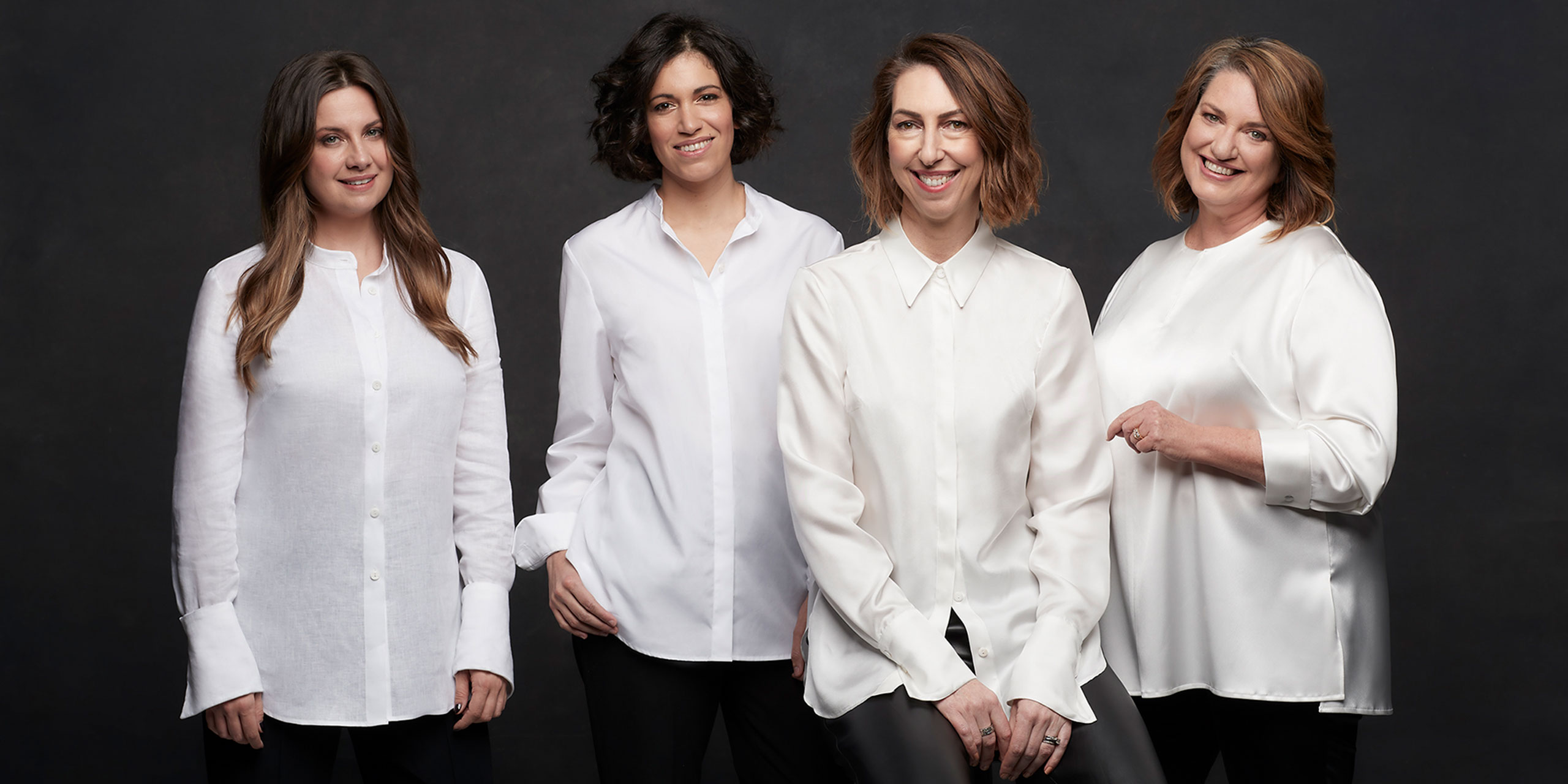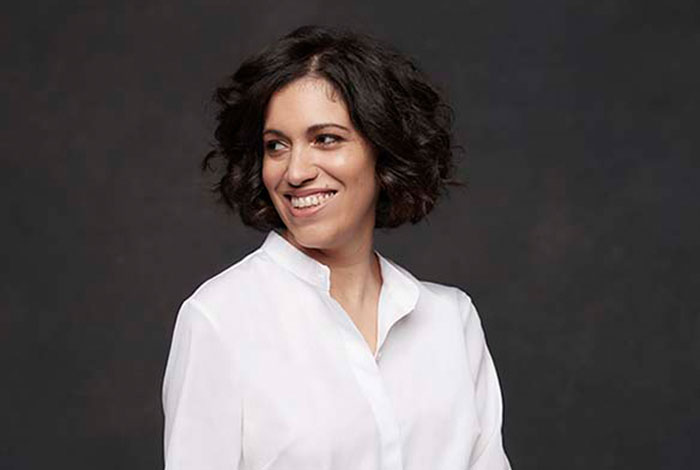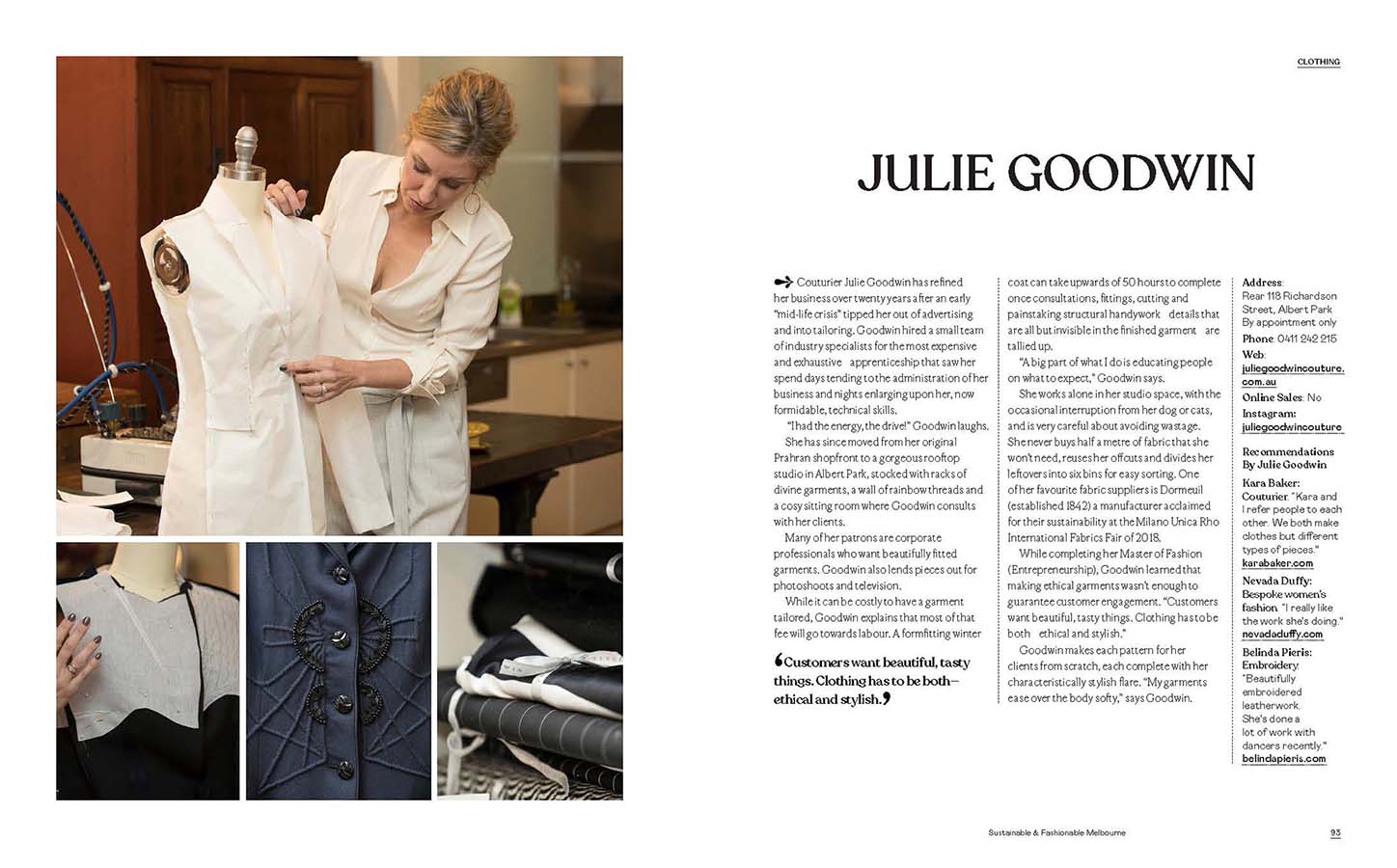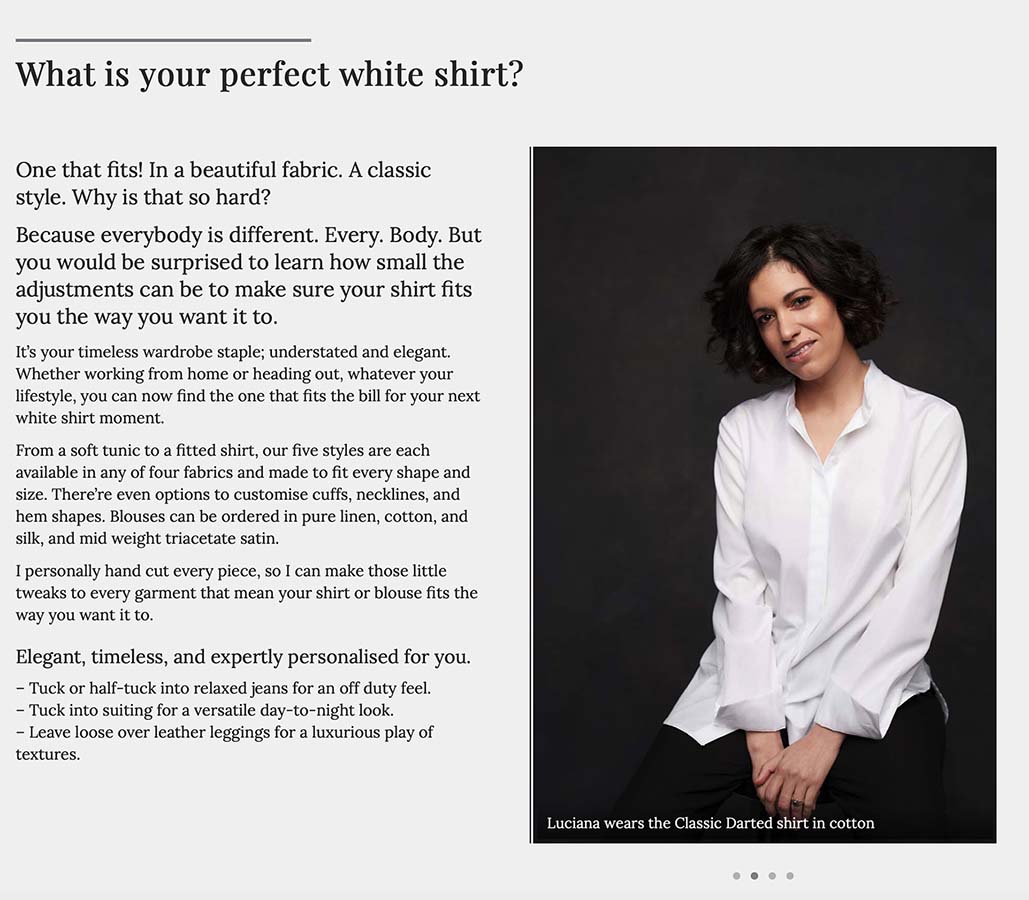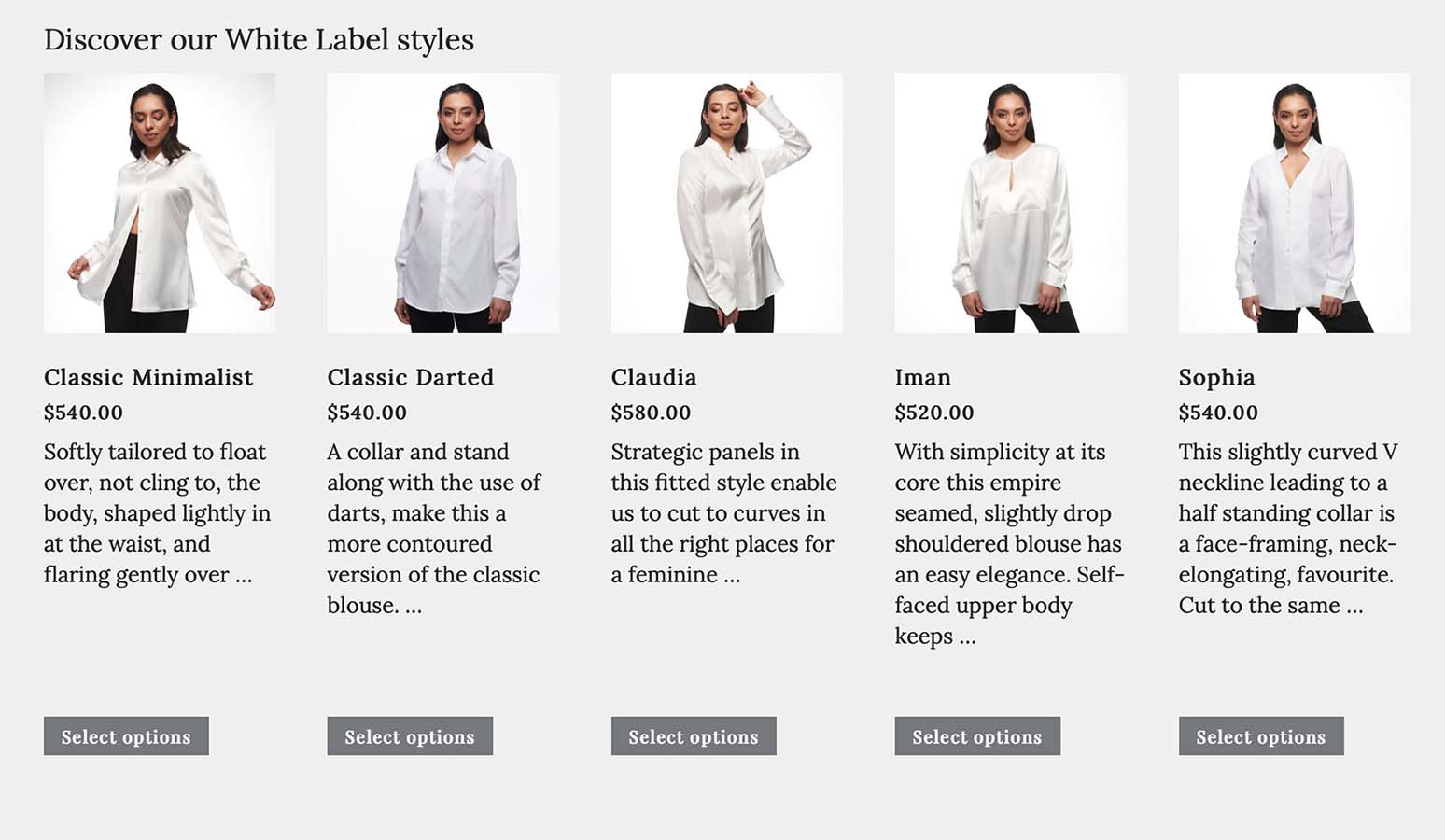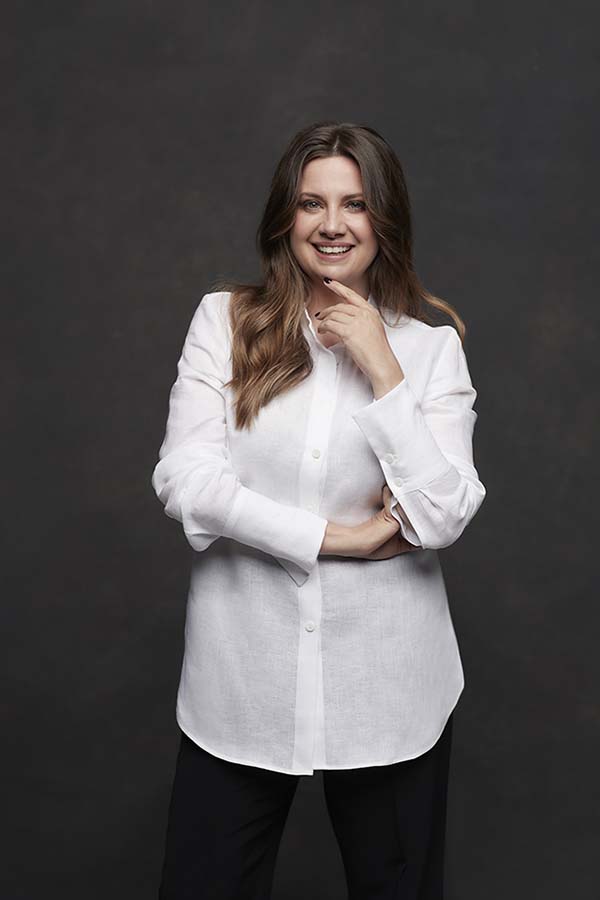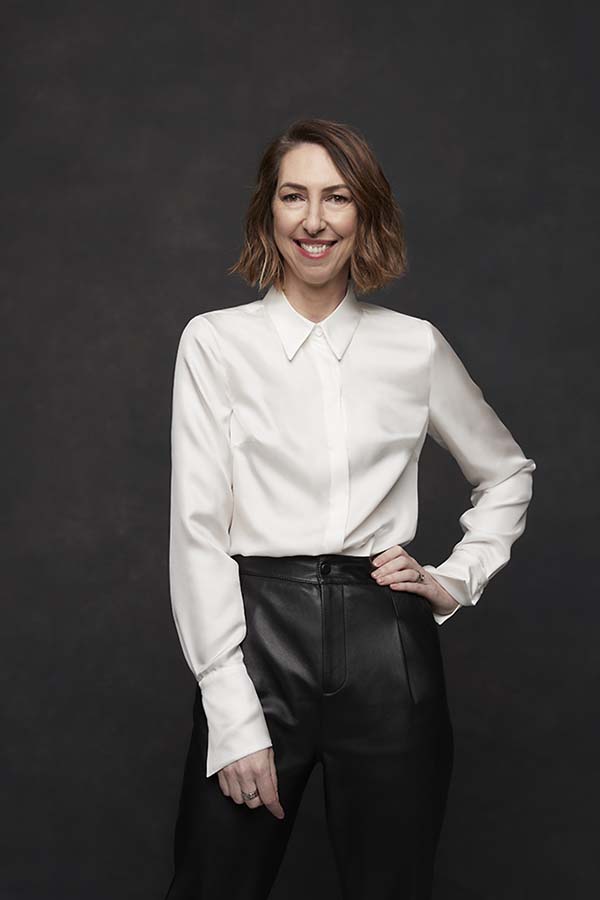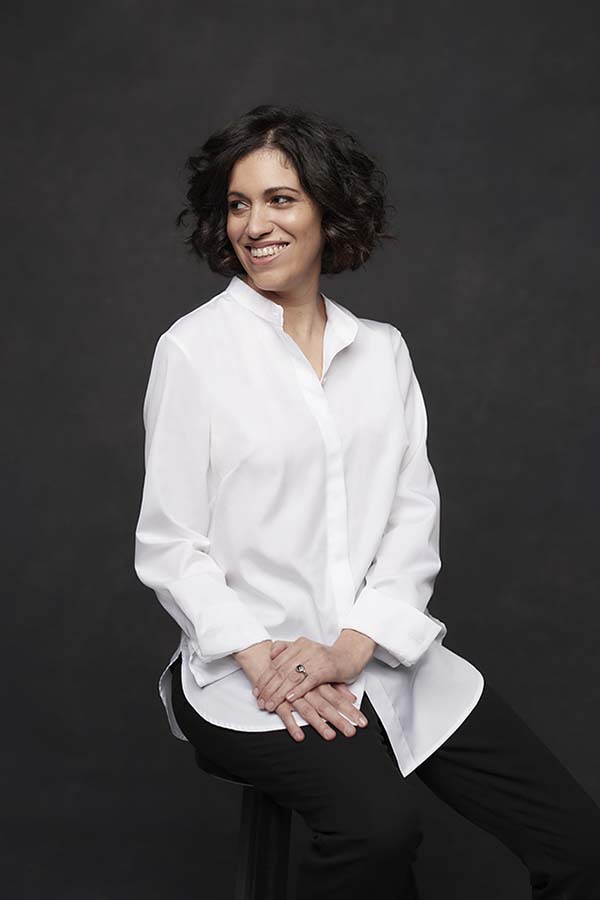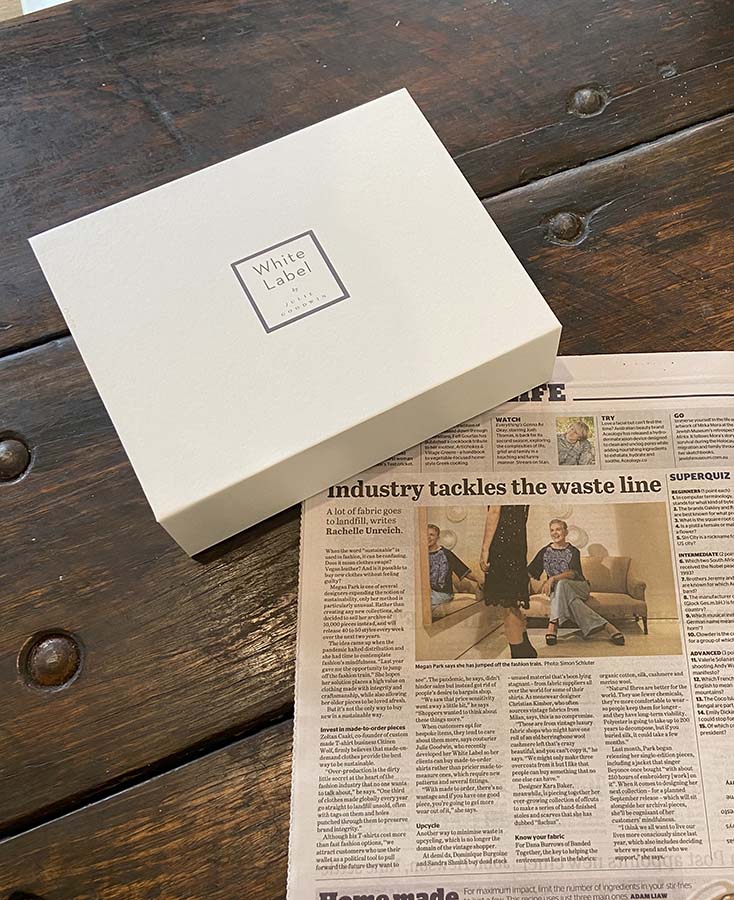To successfully execute the brief, I needed to:
- streamline the making process to reduce cost without sacrificing bespoke elements of garments
- develop an online platform that effectively allows for client input to specifications of each garment
- communicate the offer clearly to potential clients I approached Fiona Brand, website designer, to ask if the concept was viable from a digital perspective, and she worked with a developer on the mechanics of the site.
We developed a series of digital ‘buttons’ and ‘pop ups’ so clients can see and choose from collars, cuffs, fabrics, hemline shapes, buttons, and placket styles, along with explanations and illustrations that show what these choices look like. We also ensure the fit of each shirt is to each client's specifications, with instructions on how to measure themselves and one of their own garments for comparison. RB Patterns helped develop a range of patterns for 5 styles of shirt, sizes 8 – 22, with as many pattern pieces in common as possible. I wanted to have enough variables covered with interchangeable parts so I could ‘pick and mix’ from various styles to assemble what the client wants, cut exactly to their size, without having draft individual patterns for each client. Potter and Co fabrics ensure a supply of materials that are both high quality and eco-friendly available in the small quantities I need to avoid waste.
For the product launch, I developed a flip book, which worked like a “make your own animal” style children’s book. It is cut into 3 horizontally, and you can design your own shirt with it by flipping different top, middle and bottom halves into alignment. When presented to those at the launch, the response was instant and emphatic – it is a very clear (and fun) way of communicating the concept.

